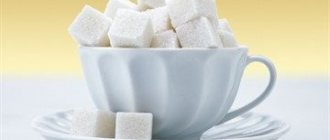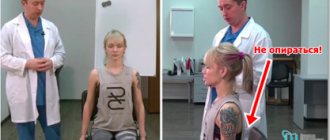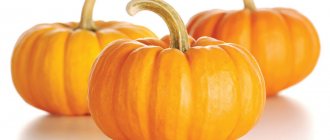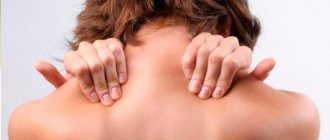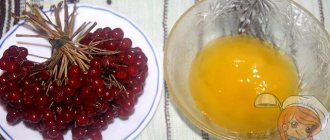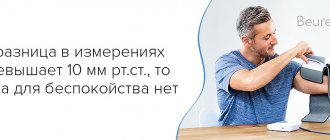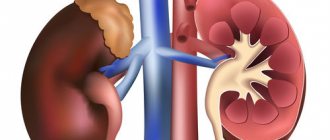Vitamins for the heart and blood vessels
A strong heart and strong blood vessels are the key to a long and fulfilling life. Young people pay little attention to the state of their cardiovascular system and only grab their heads when illness strikes. The human heart copes with incredible stress every day. Due to the frantic pace of life, stress, and poor nutrition, the circulatory system is weakened and filled with waste and toxic substances. Vitamins for the heart and blood vessels are needed not only by the elderly, but also by young people. Taking vitamin supplements is a sure way to maintain health and prolong life.
Causes of heart pathologies
According to statistics, heart disease is one of the leaders among human pathologies in terms of disability and mortality. Why are modern people of all ages prone to cardiovascular diseases? The main culprit is an incorrect lifestyle. Representatives of today's youth move little, eat poorly, are often nervous, worried, exposed to stress, chasing success, forgetting about rest. And lack of sleep and excessive stress are the main enemies of the heart. Cardiac pathologies occur as a result of exposure to the following factors:
- high blood pressure;
- obesity;
- sedentary lifestyle;
- bad habits;
- constant stress;
- genetic predisposition;
- lack of vitamins and microelements in the body.
Vitamins and biologically active substances necessary for the heart
In order for the heart to remain healthy, the body must receive optimal amounts of vitamins and microelements. Listed below are the vitamins most essential for the normal functioning of the heart muscle.
- Retinol or vitamin A. A fat-soluble substance that stimulates metabolism and prevents the development of atherosclerosis. Fish oil, milk, and carrots are rich in retinol. Pharmacies sell retinol acetate, a solution for oral administration.
- Ascorbic acid or vitamin C. A water-soluble substance that activates metabolism, destroys bad cholesterol, and strengthens the heart muscle. The vitamin is found in large quantities mainly in plant foods: rose hips, citrus fruits, currants, bell peppers. Ascorbic acid can be used in injections, tablets and dissolving pills.
- Tocopherol or vitamin E. Prevents the oxidation of fats and the formation of free radicals that destroy the tissue of the heart muscle and blood vessels. It is present in significant quantities in liver, nuts, and vegetable oil. The vitamin can be purchased at the pharmacy in capsule form or as a solution.
- Rutin or vitamin P. A water-soluble substance that strengthens the walls of blood vessels, used for pathological bleeding. Citrus fruits, apples, and rose hips are rich in vitamins. In pharmacies, rutin is sold in tablet form.
- Thiamine or vitamin B1. A water-soluble substance necessary for proper contraction of the heart muscle. Cereal porridges contain the most thiamine. To eliminate the deficiency of this vitamin in the body, injections are usually prescribed.
- Pyridoxine or vitamin B6. Destroys harmful cholesterol, normalizes the functioning of blood vessels in the nose, eyes, brain, and activates lipid metabolism. It is present in significant quantities in meat, fish, legumes, and milk. Typically used as pyridoxine hydrochloride injections.
- Vitamin F. Vitamin-like compounds are polyunsaturated fatty acids. Prevents the formation of cholesterol plaques in blood vessels. Fish oil, vegetable oils, fish and seafood are rich in fatty acids.
- Coenzyme Q10. An enzyme that is synthesized in the human liver with sufficient intake of plant and animal products. With a deficiency of the substance, the likelihood of myocardial infarction increases, and the body rapidly ages.
Heart-essential minerals
Certain minerals have a positive effect on the functioning of the circulatory system. Below is a list of the most important minerals for the heart.
- Calcium. Regulates the frequency of contractions of the heart muscle, strengthens the walls of arteries and veins. It is found in significant quantities in fish and dairy products.
- Potassium. Controls nerve impulses that cause the heart muscle to contract. It is present in high concentrations in nuts, dried fruits, potatoes, and cabbage.
- Magnesium. Improves metabolism in cardiac tissues, prevents the formation of blood clots. It is found in large quantities in meat, legumes, and fish.
- Phosphorus. Participates in the formation of cell membranes. Regulates muscle contractions and nerve signal transmission. It is present in significant quantities in bran bread, green beans, and dried fruits.
Vitamins beneficial for brain vessels
Due to poor blood circulation in the brain, strokes often occur. And after a stroke, a person experiences problems with memory, visual and speech function. For your brain to function properly, you need to take vitamins regularly. Below is a list of substances important for the blood vessels of the brain.
- Thiamine or vitamin B1. Improves memory, helps to absorb information faster. Vitamin deficiency causes insomnia, frequent fatigue, problems with coordination of movements, and depression. To replenish thiamine in the body, you should eat fish, meat, nuts, eggs, and oatmeal.
- Riboflavin or vitamin B2. Provides brain tissue with energy, helps cope with high intellectual and physical stress. If there is a lack of the substance, a person becomes drowsy and distracted, his appetite worsens and headaches occur. Meat and dairy products are rich in vitamins.
- Nicotinic acid or vitamin B3. Stimulates energy synthesis in the body, normalizes the functioning of blood vessels in the eyes, nose and brain. It is present in large quantities in liver, meat, legumes, fish, nuts, and eggs.
- Pantothenic acid or vitamin B5. Controls the transmission of nerve impulses and supports mental performance. With a deficiency of the substance, depression, insomnia, and chronic fatigue are noted. Milk, liver, and cabbage are rich in vitamins.
- Pyridoxine or vitamin B6. Restores nerves, strengthens brain vessels. With a lack of the substance, a person becomes hot-tempered and anxious, he experiences depression and sleep disturbances. The vitamin is present in significant concentrations in cereals, liver, legumes, and nuts.
- Folic acid or vitamin B9. Improves thinking ability. With vitamin deficiency, memory deteriorates, apathy and weakness are noted. The substance is rich in nuts, cereals, mushrooms, meat, and fresh plant products.
- Cyanocobalamin or vitamin B12. Regulates the change in phases of sleep and wakefulness, increases brain activity. With a lack of the substance, depression, tinnitus, decreased intellectual abilities, nervousness, visual and memory impairment are noted. The vitamin is present only in animal foods and some algae.
Strengthening the blood vessels of the extremities
The main problem of the blood vessels of the legs is varicose veins. This is an extremely unpleasant disease, in its advanced form manifested by swelling of the knees, legs and feet, inflammation and darkening of the skin of the lower extremities.
To strengthen the blood vessels of the arms and legs, it is necessary to take vitamin complexes supplemented with iron, zinc and calcium. Elimination of varicose veins is carried out through complex therapy. The doctor prescribes therapeutic exercises, physiotherapeutic and water procedures, and medications to the patient. A sick person should not stand or sit in one position for a long time, consume a lot of salt, coffee, black tea, and alcohol. To successfully get rid of the disease, you must adhere to a diet and monitor your body weight.
Strengthening eye blood vessels
If the eyes hurt and hurt, and blood streaks are noticeable on their surface, then we can talk about weakening of the eye vessels. The blood vessels of the eyes are weakened under the influence of the following factors:
- allergies;
- long periods of time at the computer;
- bright sun and harsh wind;
- insomnia;
- changes in blood pressure;
- intense physical activity.
To prevent blood vessels in the eyes from bursting, it is necessary to take B vitamins and ascorbic acid. For severe vascular pathologies of the eyes, it is recommended to administer rutin intramuscularly. Fresh fruits and vegetables, green or rosehip tea are beneficial.
Products to strengthen blood vessels and improve heart function
To keep your cardiovascular system healthy, you need to include the following foods in your diet.
- Olive oil. A high-quality first-press product is rich in unsaturated fats and antioxidants, which cleanse blood vessels of harmful accumulations. With regular consumption of olive oil, the concentration of bad cholesterol in the blood is greatly reduced.
- Dried apricots. Dried apricots contain large quantities of natural antioxidants that protect heart cells from toxins and breakdown products. Dried apricots contain potassium, which prevents the development of a heart attack.
- Fish. Rich in substances that strengthen the walls of blood vessels. Useful for arrhythmia.
- Nuts. They contain arginine, an amino acid that has a beneficial effect on the heart. Regular consumption of nuts significantly reduces the likelihood of a heart attack.
- Dark chocolate . A high-quality product contains flavonoids - pigments that dilate blood vessels, helping to eliminate hypertension. It should be noted that chocolate has no effect on people with low blood pressure.
- Grape. Contains significant amounts of antioxidants and heart vitamins. High-quality grape wines also contain antioxidants. However, you should not abuse alcoholic beverages, otherwise the harm will outweigh the benefits.
Who is recommended to take vitamins for blood vessels and heart?
Many people begin to take care of the circulatory system only when it becomes ill. By supporting and protecting the heart and blood vessels, you can not only cure dangerous pathologies, but also prevent their occurrence. Which groups of people need vitamins for the heart and blood vessels?
- Patients suffering from vascular diseases of the brain and limbs.
- Athletes.
- Children and teenagers.
- People over 50 years old.
- Patients who have undergone heart surgery.
- People doing heavy physical work.
- People working in hazardous workplaces.
People belonging to the categories listed above should definitely contact a cardiologist. The doctor will select the optimal complex of vitamins and minerals. The dosage of the drug and the duration of the therapeutic course are determined by the medical specialist, focusing on the age and well-being of the patient.
Be healthy!
Doctor-hygienist
Gapanovich Valentina,
How to find out if you have anemia
Typically, in the initial stages, iron deficiency states do not appear externally. But minor symptoms may appear, which are usually ignored and lead to further development of the disease.
“With a lack of iron, the formation of the protein that carries oxygen to cells—hemoglobin—is disrupted. When his performance decreases slightly, fatigue increases, shortness of breath, dizziness and fainting occur with minor exertion,” says the hematologist.
You can find out about a lack of iron in the body only through a blood test. It makes sense to take it if all the symptoms appear for no apparent reason.
The list of tests must include a test for hemoglobin level, hematocrit, mean erythrocyte volume (MCV) and mean erythrocyte hemoglobin content (MCH).
Natalya Polenova notes that a single general blood test assessing hemoglobin levels is often not enough, especially for women or people with chronic heart failure.
Only a doctor can, after studying the tests, identify the cause of the deficiency and prescribe treatment.
